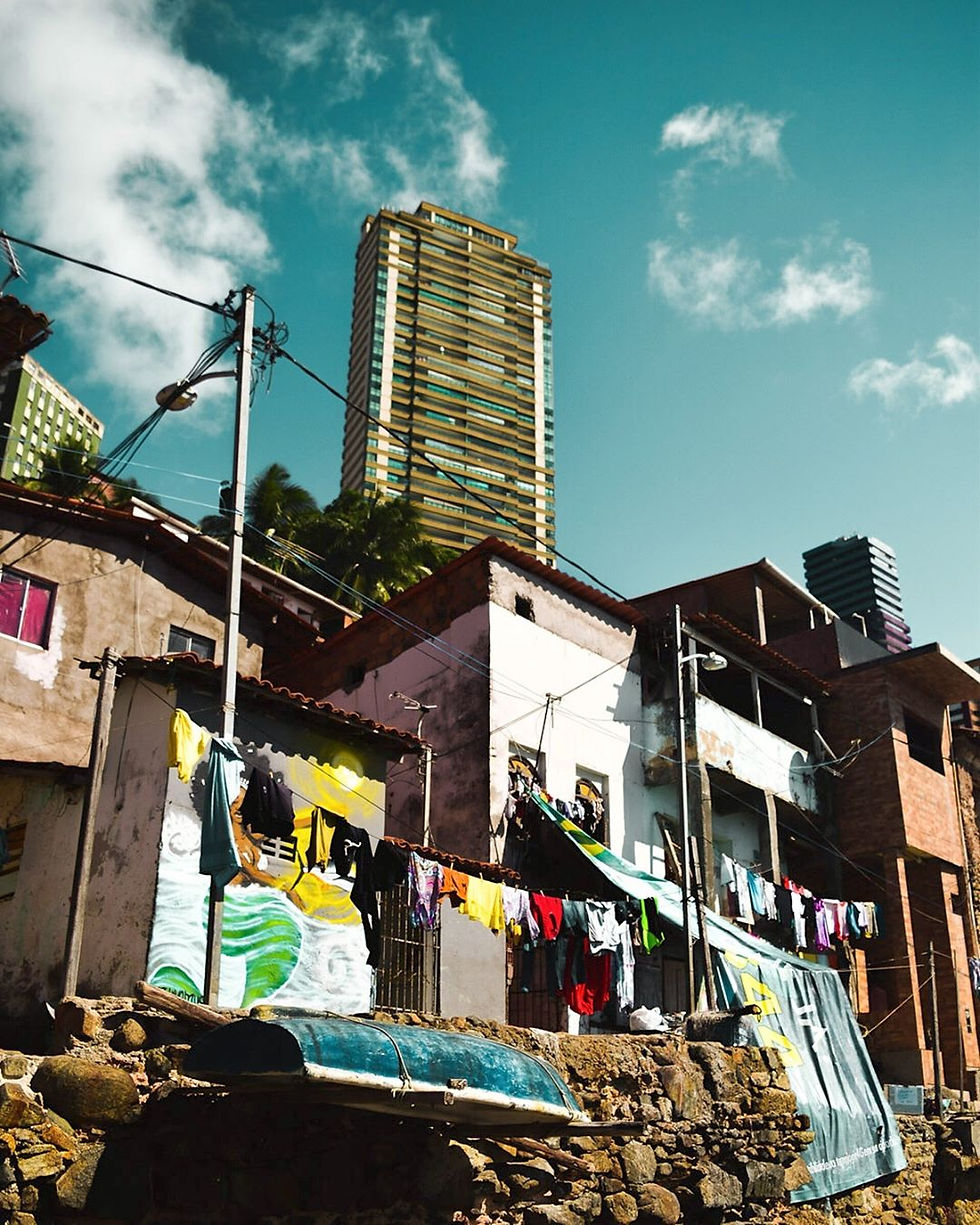Salvador, máquina de beleza, máquina de lucro / Salvador, beauty machine, profit machine
- Lorena Machado

- May 15, 2020
- 5 min read
Updated: May 16, 2020
*scroll down for English translation

Cristhian Carvalho
Bem vinda (o) !
Essa é provavelmente a primeira coisa que que você vai ouvir quando chegar no Brasil. Principalmente quando chegar em Salvador. Numa cidade altamente turística, numa cidade onde muitas pessoas vivem do cuidado e do entretenimento não é de se estranhar que a chegada seja calorosa. Vendida aos quatro cantos como a “Roma negra” graças a presença dos cultos de matriz africana, é a diáspora que estampa as esquinas, os bairros, as periferias, o dia-a-dia na cidade. A riqueza ancestral está na comida, nas danças, nos adereços, no canto, na melanina na pele de cerca de 85% das pessoas que se consideram pretas, tornando Salvador a cidade mais preta do país. A fama internacional pelas festas anuais como carnaval e a festa de Iemanjá no dia 2 de fevereiro atraem pessoas do mundo todo pra descobrir o que é que a Bahia tem, o que Salvador tem.
Gosto muito da palavra “beleza” e sempre penso nessa palavra quando quero descrever algo ou alguém que me toca profundamente. E eu não poderia escolher outra palavra para descrever a minha cidade. Meus olhos sempre enxergam com ternura e beleza as histórias sobre os bairros, a coragem e poder de resiliência dos seus moradores, a longevidade das tradições, dos monumentos, até a fala tem beleza. O “pretoguês” é muito falado aqui, palavras bantu que se incorporaram ao português colonial criam uma particularidade no nosso falar que é beleza pura. A beleza dos cabelos, dos turbantes me transportam e me conectam de uma maneira muito forte a pessoas que eu posso não conhecer, mas numa troca de olhares sabemos que nossas raízes são as mesmas.

Cristhian Carvalho
Uma outra palavra que gosto muito é harmonia. Quando penso em algo harmônico, penso num ciclo que funciona bem, penso em coisas que se completam e em trocas frutíferas, que promovem bem-estar. Essa não é uma palavra que posso usar pra descrever as relações em Salvador. Cidade sustentada por braços, pernas e artes negras, as raízes racistas coloniais e a branquitude contemporânea na cidade estão em total desarmonia com quem lhe sustenta. Como no verso da música do grupo BaianaSystem “Lucro, Máquina de louco, Você pra mim é lucro, Máquina de louco” e é assim que muitos vêem a cidade, mais uma de suas máquinas de lucro. A grande maioria das pessoas que trabalham informalmente para garantir com que as festas aconteçam, pessoas negras, não são bem pagas por isso e trabalham sem a mínima dignidade. Artistas, de todos os setores, não vêem um retorno financeiro digno ao seu trabalho e que lhes permita viver disso. Toda propaganda feita sobre a beleza negra da cidade se contradiz com a falta de harmonia sobre quem majoritariamente produz e quem majoritariamente fica com o grande lucro sobre as produções artísticas de Salvador.
Eu vi beleza quando fui pela primeira vez assisti a uma peça do grandioso Bando de Teatro Olodum, mas não é nada harmonioso encontrar teatros que promovem a cultura negra na cidade quase fechando enquanto a indústria do entretenimento se apropria das narrativas negras e ganham patrocínios exorbitantes. Falar de Arte em Salvador e no Brasil em geral é falar de um campo simbólico de disputas eternas entre apropriações e forças hegemônicas. As muitas narrativas artísticas aqui se reinventam para viver, vender e resistir, e, com a força dos nossos ancestrais, a Salvador negra e artística pulsa cada vez mais forte.
Salvador, beauty machine, profit machine / Salvador, máquina beleza, maquina de lucro

Cristhian Carvalho
"Welcome!"
These are likely the first words you will hear when arriving in Brazil - especially if you come to Salvador. Being a city that heavily relies upon tourism, where a lot of people make their living in the service industry, a warm welcome is expected. A city marketed around the world as the “Black Rome” thanks to the presence of African-based religion, Salvador is the Diaspora. Blackness is painted in every corner, in every neighborhood and favela - it is the entire daily life of the city. The ancestral richness is undeniable in our cuisine, dance, clothing, music, and of course the melanin. Approximately 85% of the population identifies as African-descendant, making Salvador the Blackest city in Brazil. The international fame of annual celebrations such as carnival and the Yemanja party, attract people from across the world, all in search of what is so special about the state of Bahia, about Salvador.
I really appreciate the word “beauty”. I always think about this word when I want to describe something or somebody that touches me deeply. And I could not choose another word to describe my city. My senses are full of tenderness and beauty as I learn the stories of our neighbourhoods; the courage, power and resilience of the residents, the longevity of our traditions, our monuments - there is beauty when we speak. “Pretoguês” is the language here, as bantu words, incorporated with colonial Portuguese, maintain their prominence and nurture a linguistic peculiarity that emanates pure beauty. Our hair and headwraps connect me in a beautiful way to people that I may not know, but in an exchange of glances we recognize that our roots are the same.




Comments